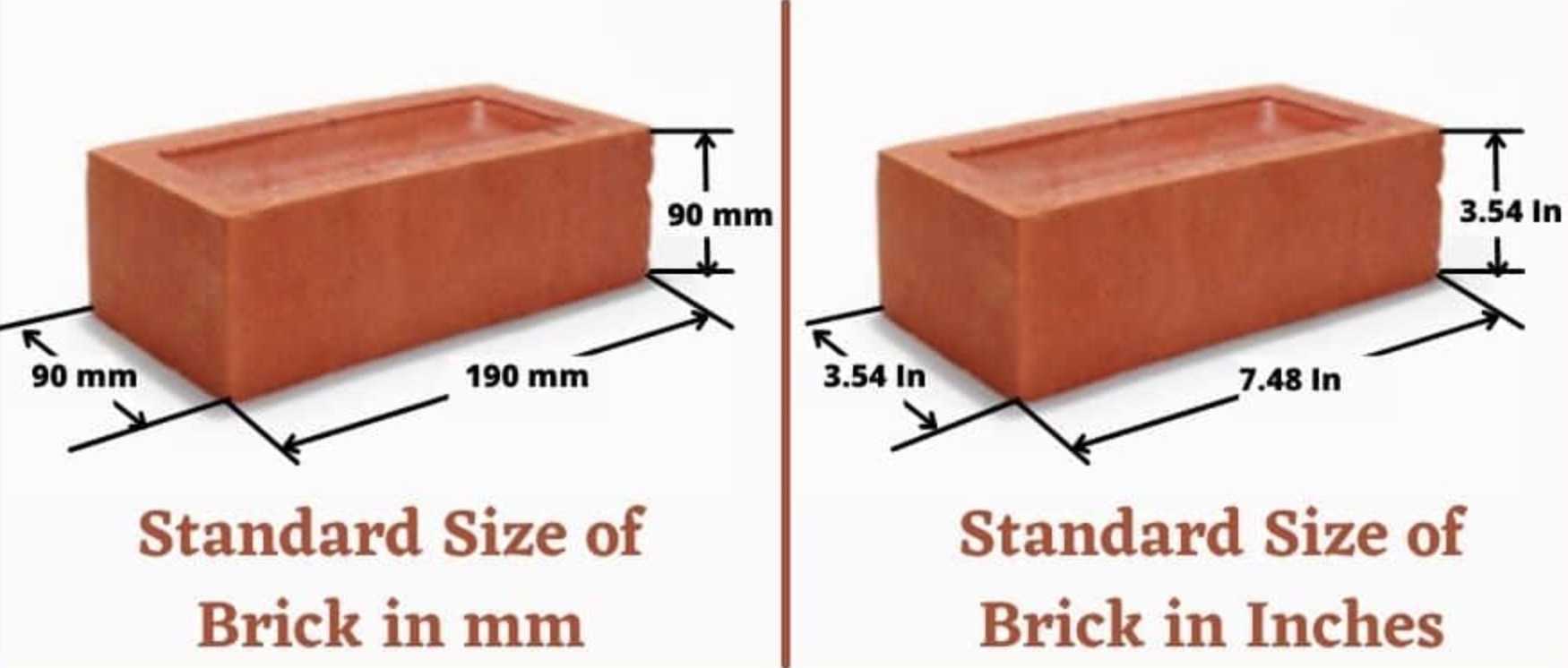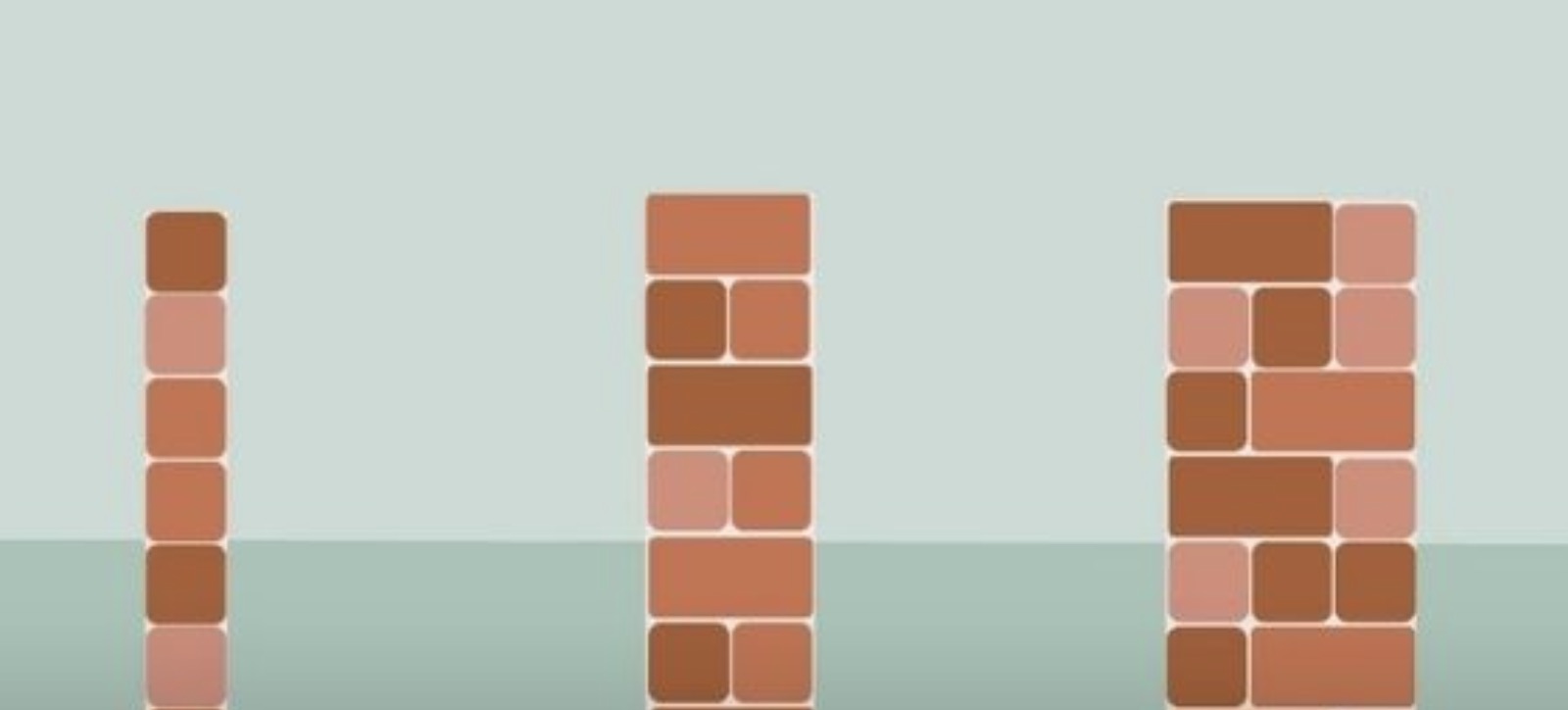Online Bricks Calculator – Brick calculator shows the total number of required bricks for masonry walls, columns, foundations etc. Also, how to calculate the number of bricks manually is discussed.
Bricks, the most commonly used building material and generally used for constructing walls, roofs, paving floors, etc. The term BRICK is referred as a rectangular unit composed of clay. Bricks are available in different classes and sizes. The sizes of brick may vary according to the region. To know about Brickwork calculation learn some basic info on Bricks.
This is the Best brick calculator for garden wall. There are certain rules for using this Brick Calculator.
- This is Designed as a brick calculator for house India.
- Best as bricks calculator for the wall (Without Window, any vacant space and Gate)
- Perfect for brick calculator Flemish bond.
Most Accurate Online Bricks Calculator
We are discussing about Bricks Calculator. This is the same Bricks Calculator for bricks calculator in feet. Our online tools will provide quick answers to your calculation and conversion needs. On this page, you can calculate the number of bricks and amount of mortar required for a given wall area. Once the quantities are known, it is easy to estimate the cost with the rates prevailing in your area.
Using above Calculator you can estimate brick wall cost. You can also use this calculator as Brick Wall Cost Calculator or Brick Cost Estimator.
Brick Quantity Estimation
The calculations on this page is based on the following assumptions:-
i) The bricks are laid on stretcher bonds
ii) There is 1/2 inch mortar joint between the bricks
iii) The mortar mix is 1:4 (cement:sand)
The simple way to calculate number of bricks is to divide surface area of the wall by the surface area (vertical face) of a single brick.
Formula: Bricks Required = Wall Area/ Brick Area
No. Of Bricks required for 1 Cubic Metre or 1m3. (Brick Work Calculation)
To calculate No. Of Bricks required for 1 Cubic Metre or 1m3. (Brick Work Calculation) follow these Steps-
- #Step 1:- At First We Will Calculate the Volume of Single Unit of Brick:In India, the standard size of brick is 190mm x 90mmx 90mm. Standard Size of Brick can be vary according to the region/district or Location. Calculation method is same for any size of brick.But for Calculation, I am considering mostly used size of brick.The size of Brick is 9″x 4″x 3″ (Taken as Example)
- #Step 2:- Unit Conversion of BrickConverting INCH to M for ease in calculation. If you are unable to convert units use Google Conversion tools.Total Volume = 9″x4″x3″ = 0.2286m x 0.1016m x 0.0762mVolume of Single unit of Brick in Cu.m = 0.00176980 cu.m
- #Step 3:- VolumeVolume required = 1m x 1m x 1mTotal Volume Required = 1Cu.m or 1m3
- #Step 4 :- Volume of Each brick = 0.0017698m3No. of Bricks in 1m3 = 1/0.0017698 = 565 BricksHence, 565 bricks are required for 1 cubic metre or 1m3 of bricks.
How to Calculate the rate of brickwork when wall dimensions are given.
A brick calculator is a useful tool for any construction project that involves bricks. It can help you determine the number of bricks you will need for a specific project, taking into account the size of the project and the size of the bricks you plan to use. A brick calculator in feet is particularly useful for projects in the United States, where measurements are often made in feet and inches.
To use a brick calculator, you will need to know the dimensions of your project in feet. This includes the length, width, and height of the area you plan to build. You will also need to know the size of the bricks you plan to use. Bricks come in a variety of sizes, such as standard, queen, and king size. Once you have this information, you can enter it into the brick calculator, and it will calculate the number of bricks you will need to complete your project.
The brick calculator will also take into account the joint size of the bricks. The joint size refers to the width of the mortar joint between the bricks. Standard joint size is typically around 3/8 inch. However, some projects may require a larger or smaller joint size. The brick calculator will adjust the number of bricks needed accordingly.

Brick Calculator in Feet
It’s important to note that the brick calculator is based on the assumption that you will be using full bricks. If you plan to use half bricks or other variations, you will need to adjust the calculator accordingly. Additionally, the brick calculator is based on a single-layer brick wall. If you plan to build a double-layer wall or use multiple layers of bricks in some areas, you will need to adjust the calculator accordingly.
Another important thing to consider when using a brick calculator is the waste factor. Construction projects often result in some waste or breakage of bricks. The brick calculator will take this into account and provide you with a slightly higher number of bricks to account for any waste or breakage.

In conclusion, a brick calculator is a valuable tool for any construction project that involves bricks. It can help you determine the number of bricks you will need for your project, taking into account the size of the project, the size of the bricks, and the joint size. When using a brick calculator, it’s important to keep in mind that the calculator is based on the assumption of full bricks and a single-layer wall, so you will need to adjust the calculator accordingly if your project deviates from this.
Additionally, the brick calculator takes into account the waste factor, so it’s important to consider this when planning your construction project. Overall, a brick calculator can save you time, money and hassle by ensuring that you have the right amount of bricks to complete your project.
How to Calculate Number of Bricks for Masonry Works
A brick masonry construction uses mortar as binding material for bricks. The volume of the mortar used in masonry works generally ranges from 25 to 30 % of brick masonry volume.
The thickness of mortar in brickwork is generally assumed to be 10mm or ½ inch thick. With mortar thickness, the size of such a brick becomes 200 mm x 100 mm x 100 mm (8 inch x 4 inch x 4 inch) and it is known as the nominal size of the modular brick.
For calculating the number of bricks, the thickness of plaster should be deducted from the thickness of masonry construction. For example, for a brick wall of 230mm thick, the actual thickness without plaster would be 200mm, i.e. one brick thick.
Number of Bricks for Masonry Wall ( Bricks calculator / Method )
In the Metric System:
Consider a wall with 5m length, 4m height and 200mm thickness.
Volume of brick masonry in wall = 5 x 4 x 0.2 = 4m3
Volume of one brick with mortar = 0.2 x 0.1 x 0.1 = 0.002 m3
Number of bricks = [Volume of brick masonry / volume of one brick] = 4 / 0.002 = 2000 bricks.
Thus, the number of bricks required per cubic meter = 500.
OR CHECK FOLLOWING IMAGE.
You can check our another post for concrete block calculator.
Summary:
For Brickwork of 10′ x 10′ where each Size of brick = 9″x 4″x3″
- No. of Bricks without mortar = 533 bricks
- The no. of bricks with mortar = 458 bricks
- No. of bricks with RCC bed & mortar = 428 bricks
- The quantity of mortar required = 0.42m3
- Amount of cement required = 87kgs
- The amount of sand = 0.36m3
| Link | URL |
| Standard Brick Size in India – 10 Advanced Tips & Guide for Civil Engineers | https://procivilengineer.com/brick-size/ |
| 6 Types of Bricks Classification According To Indian Standard | https://procivilengineer.com/bricks-classification-according-to-indian-standard/ |
| Online Bricks Calculator – Best and Most Accurate | https://procivilengineer.com/bricks-calculator/ |
| Fly Ash Bricks – Composition, Uses and Comparison | https://procivilengineer.com/fly-ash-bricks/ |
| Bricks – A to Z Information Construction Material | https://procivilengineer.com/bricks/ |
| 10 Types of Bricks with Details and Price in India | https://procivilengineer.com/types-of-bricks/ |
| Brick Masonry – Comprehensive Guide | https://procivilengineer.com/brick-masonry/ |
| Composition of Bricks – What are bricks made of ?? | https://procivilengineer.com/composition-of-bricks/ |